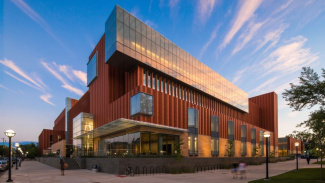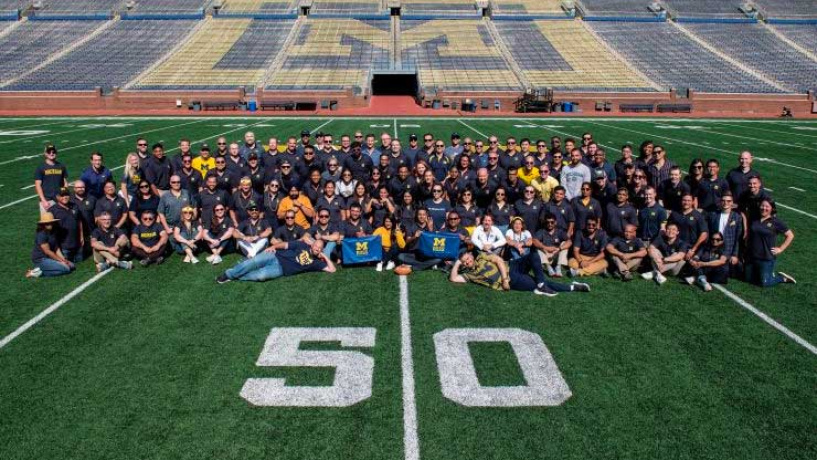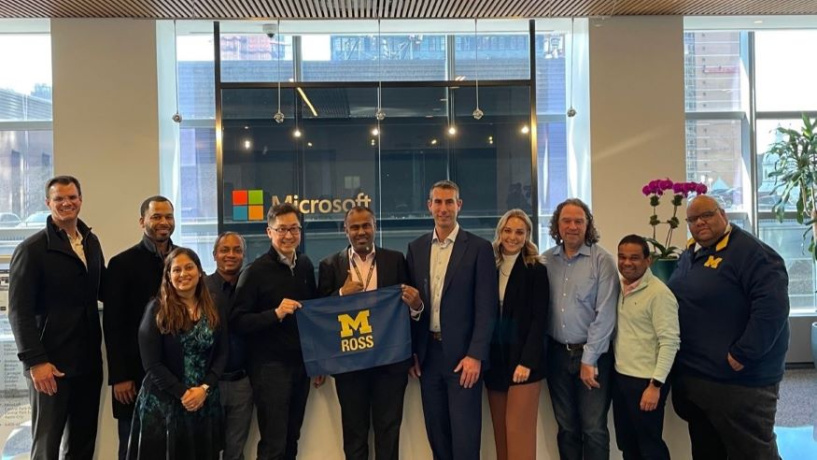Michigan Ross Earns No. 4 Spot in Fortune’s Rankings for Best Executive MBA Programs

A continuing commitment to providing mid-career professionals with foundational knowledge and action-based leadership experiences on their path to the C-suite has landed the Ross School of Business at No. 4 on Fortune’s Best Executive MBA Programs of 2024 list.
This designation represents a one-spot improvement, up from No. 5 last year.
"We are proud to see our EMBA Program move up in the Fortune ranking,” said S. Sriram, associate dean for graduate programs. “This recognition is a testament to the strength of our curriculum, the expertise of our faculty, and our innovative approach to learning. We remain committed to delivering a world-class education that helps our students elevate their careers and achieve success at an executive level.”
Fortune’s ranking methodology was based on a combination of factors, including where the leaders of the United States’ 1,000 biggest companies pursued their MBAs (25%), online search volume (15%), the school’s previous ranking (5%), and eight other school-provided data points about the program, students, and career outcomes (55%).
Michigan Ross was also recognized by Fortune earlier this year as a top producer of C-suite executives working at Fortune 1000 companies.
The Michigan Ross Executive MBA Program cohorts in Los Angeles and Ann Arbor meet one weekend a month for 21 months, providing opportunities for students to collaborate with diverse peers and build their network. Through a curriculum focused on action-based learning and leadership development, students become well-rounded business leaders equipped to balance critical thinking and sound decision-making with the ability to motivate and inspire individuals within their company.
Members of the Michigan Ross EMBA Class of 2025 hail from 22 states and nine countries. Their careers span more than 30 different industries, including healthcare, technology, financial services, and government/military. They also average 15 years of full-time work experience and nine years of supervisory experience. Students of color represent 43% of the class and 41% of the class has already earned at least one advanced degree.







